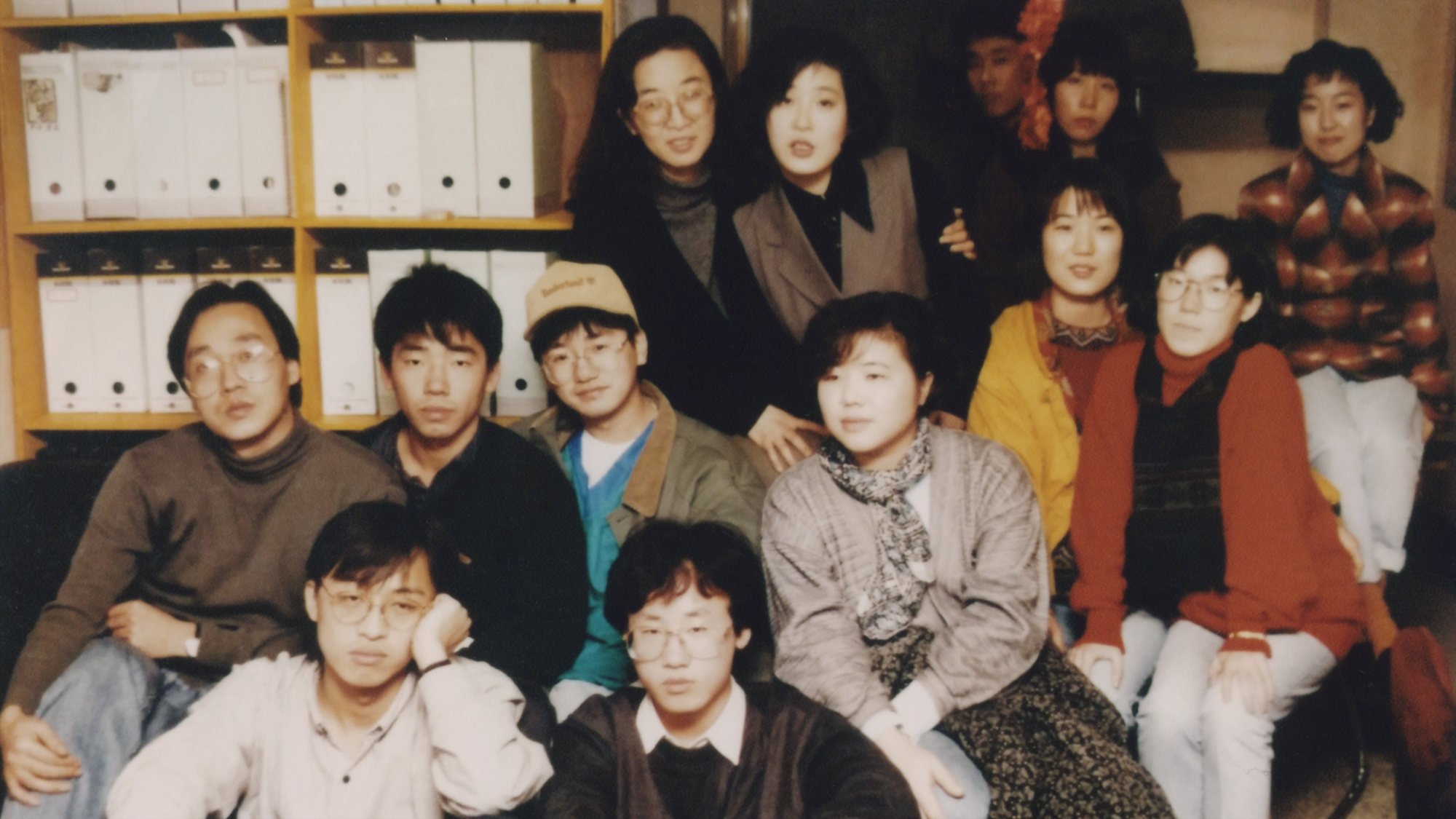
ReviewBusan 2023 movie review – Netflix documentary Yellow Door: ’90s Lo-fi Film Club recalls Korean film institute co-founded by Oscar winner Bong Joon-ho
- Film clubs like the Yellow Door Film Institute began springing up in South Korean universities in the 1990s, as the nation opened up to the world
- Bong Joon-ho was a member, as was director Lee Hyuk-rae, whose documentary reunites the club’s members to share their memories of the time
3/5 stars
The early 1990s was a fertile period for film appreciation in South Korea. As the nation opened up to the world following years of authoritarian rule, cinephiles were granted access to hundreds of revered classics of world cinema for the very first time.
To commemorate 30 years since its inception, director Lee Hyuk-rae, also a former member, has filmed a documentary reuniting those original film lovers for the first time in years.
In Yellow Door: ’90s Lo-Fi Film Club they share their memories of each other, their time together, and the one and only screening of Bong Joon-ho’s debut short film, the 23-minute stop-motion fantasy Looking for Paradise.
Bong’s role in Yellow Door was to curate and oversee the club’s film collection, and this documentary tells how he scoured video stores and markets, seeking out works by directors such as Jean-Luc Godard, Andrei Tarkovsky and Alfred Hitchcock, which would then be copied and carefully labelled for future study.
Dear Jinri: a heartbreaking interview with K-pop’s Sulli before her suicide
While some other film groups at that time were producing provocative, politically motivated works of their own, Yellow Door set its sights on producing an academic journal of film writing.
Much of the film’s humour is derived from the former members’ embarrassed and amused responses to the pretentious ideals of their younger selves.
In fact, the film is as much a nostalgic reminiscence on the subject of youthful exuberance as it is a chronicle of, as Bong puts it, Korea’s “first generation of cinephiles”.

The majority of Yellow Door members never pursued a career in the film industry after the club disbanded in 1993, and are somewhat bewildered by the films they once revered so passionately.
The documentary might have proved more intriguing and rewarding had it spent more time putting the rise in access to films and in film appreciation in the context of the country’s changing social and political landscape.
Instead, director Lee seems content to amuse himself and his audience with the almost Rashomon-like recounting of this time spent together, as the reunited members bicker and contradict one another – over the course of one lengthy video call – as to precisely what transpired and what motivated them all those years ago.

Even Bong’s innovative debut, in which a stuffed gorilla searches for his own personal utopia, is remembered – and shared with the viewer – only in disjointed, tantalising fragments.
Yellow Door: ’90s Lo-fi Film Club will start streaming on Netflix on October 27.

